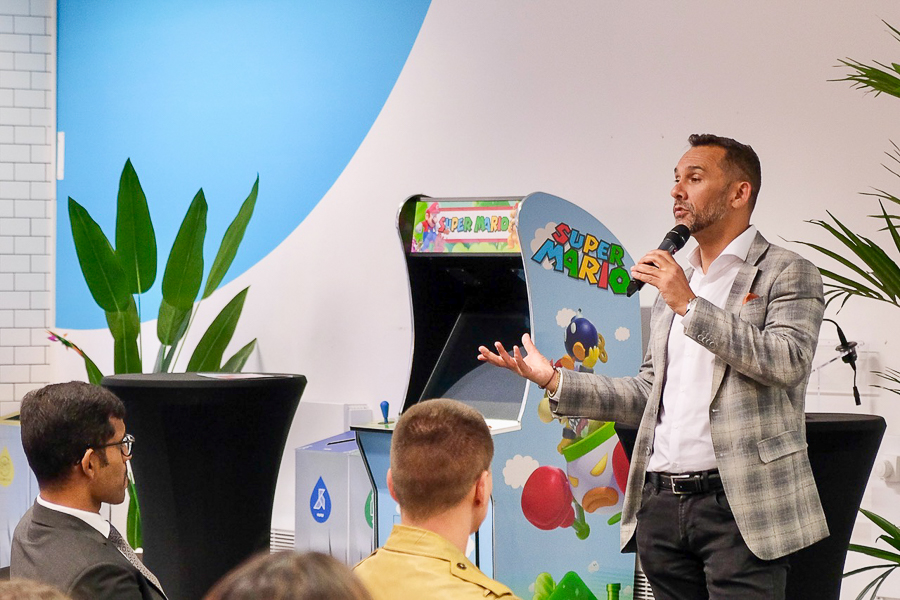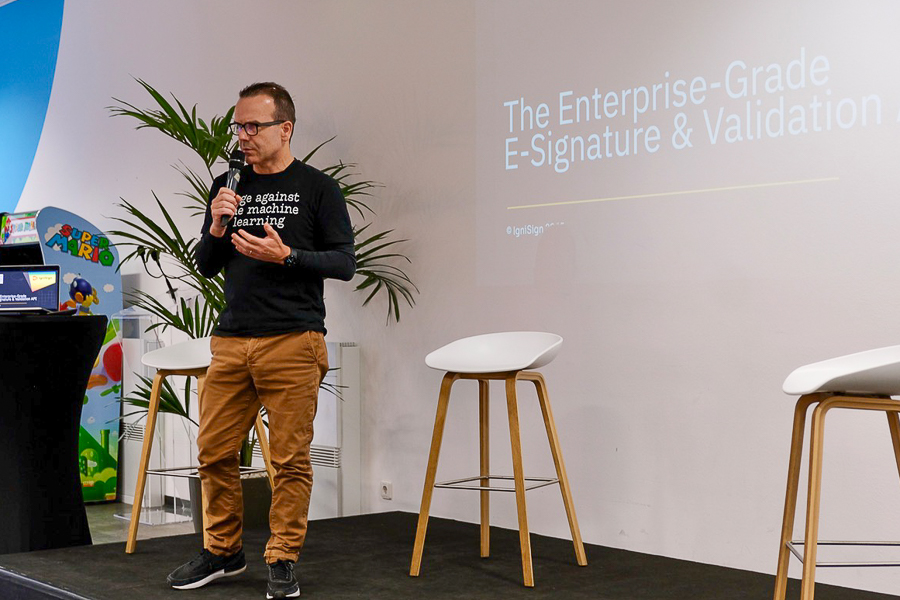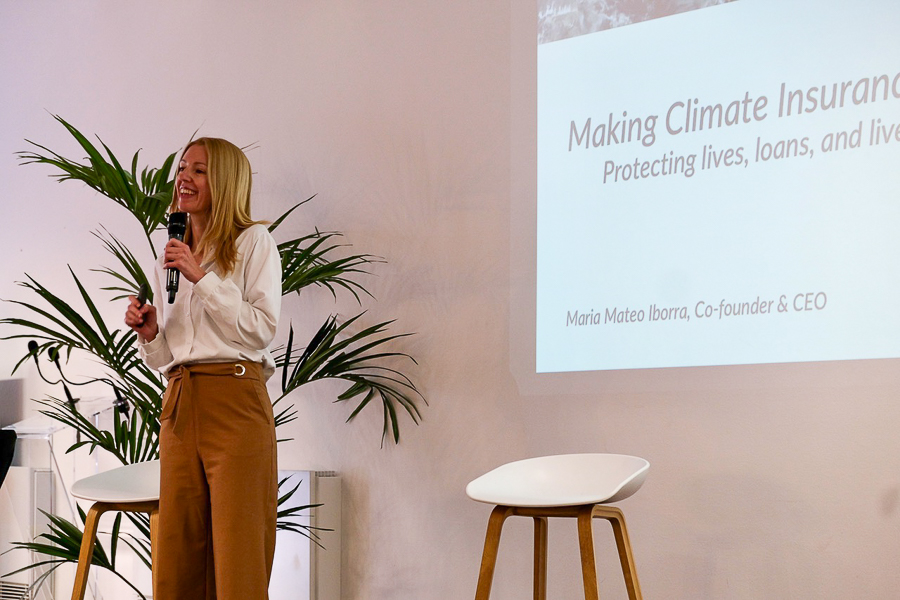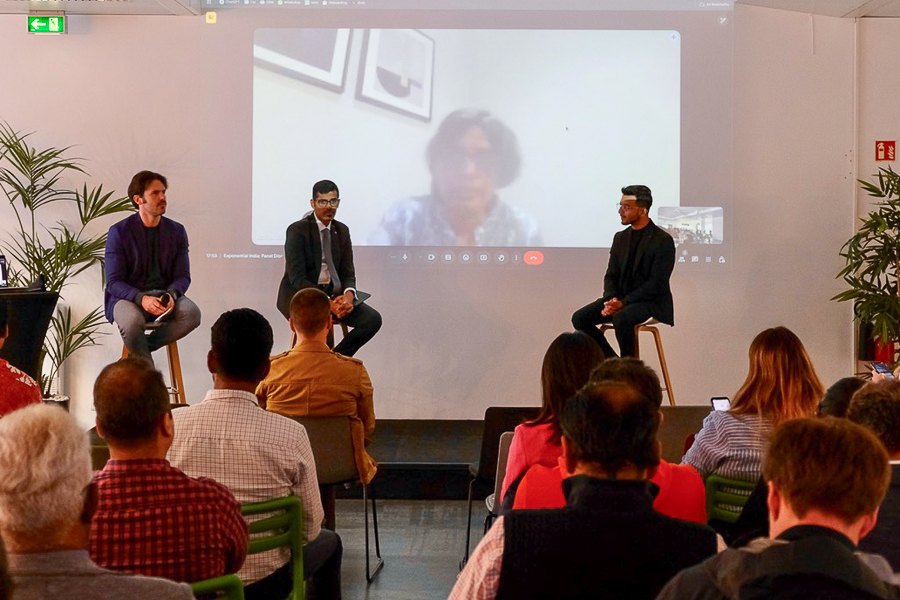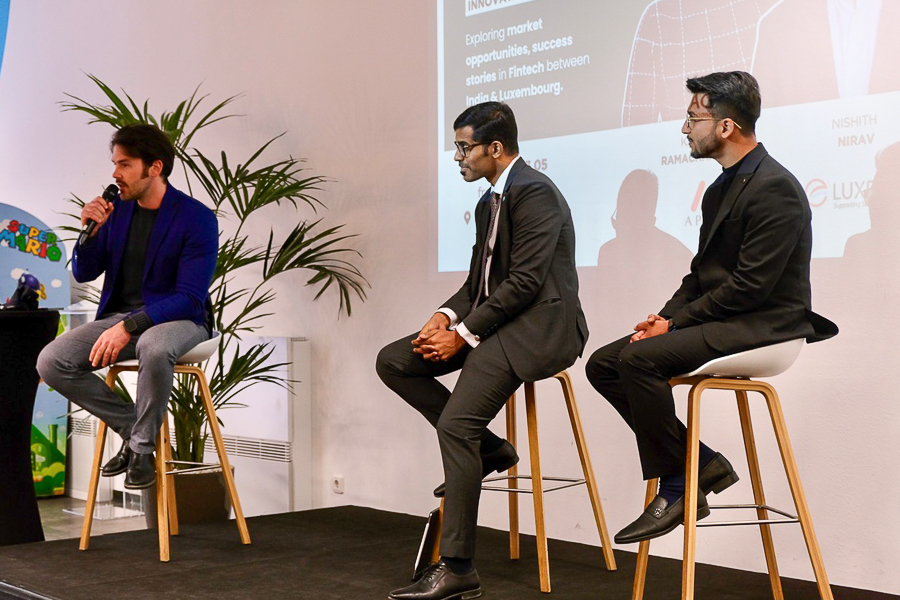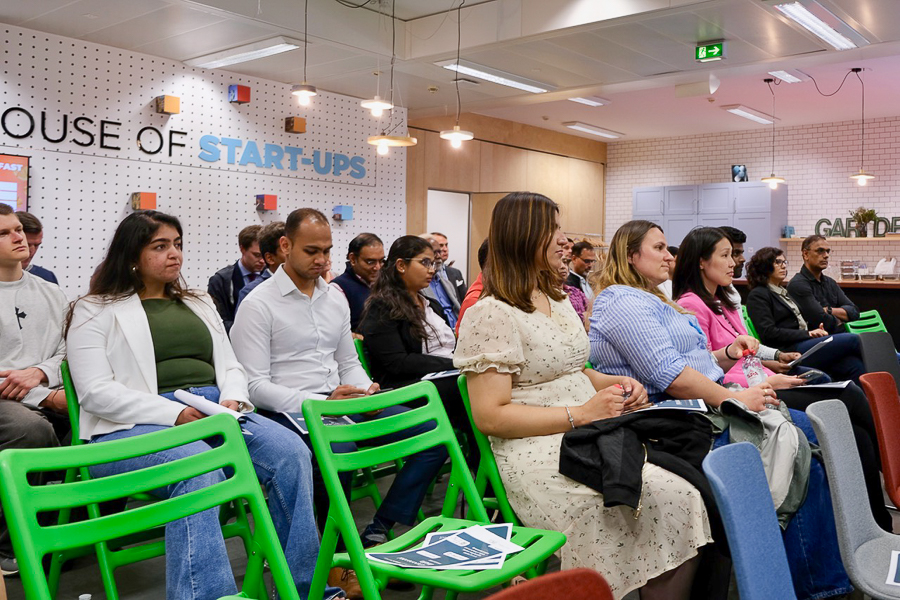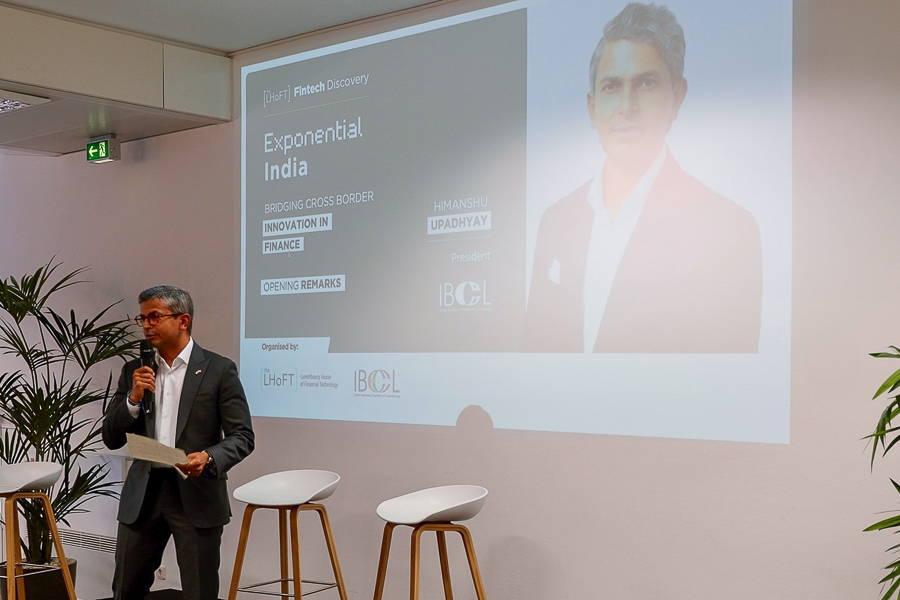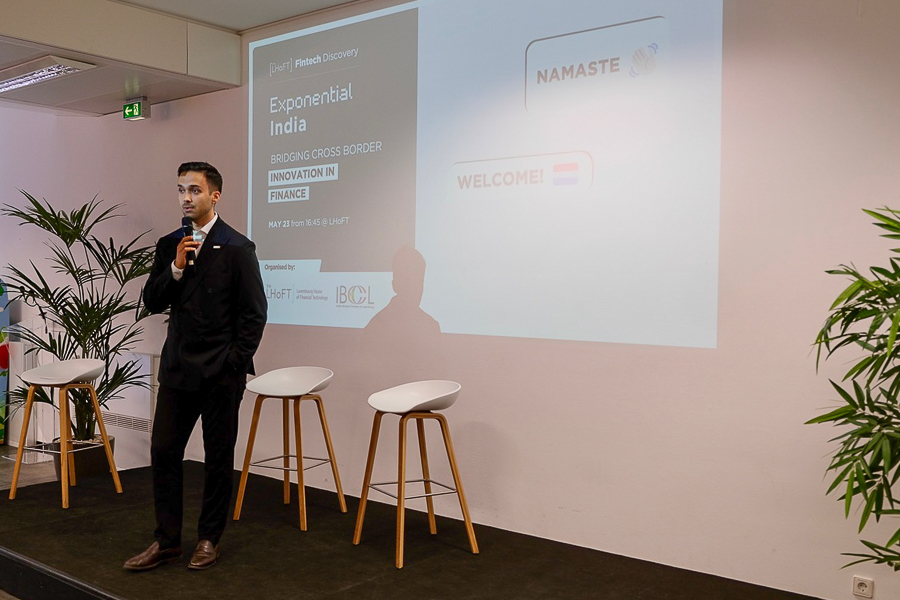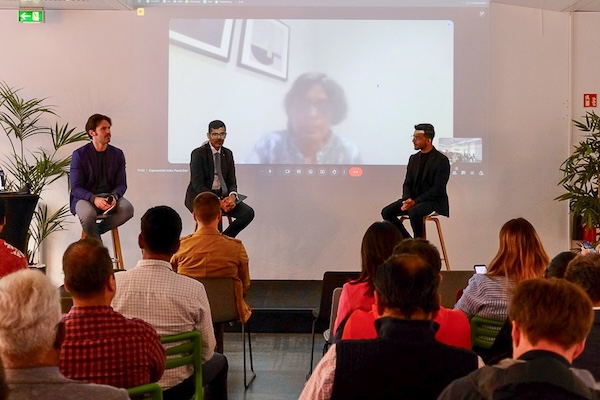 (L-R) Mattia Musetti, Luxembourg for Finance; Srinath Komarina, Global Green Growth Institute; (On screen) Kavitha Ramachandran, APEX Fund Services SA; Nishith Nirav, LuxFLAG;
Credit: Steven Miller, Chronicle.lu
(L-R) Mattia Musetti, Luxembourg for Finance; Srinath Komarina, Global Green Growth Institute; (On screen) Kavitha Ramachandran, APEX Fund Services SA; Nishith Nirav, LuxFLAG;
Credit: Steven Miller, Chronicle.lu
On Friday 23 May 2025, the Luxembourg House of Financial Technology (LHoFT) in Luxembourg-Bonnevoie hosted the Indian Business Chamber of Luxembourg (IBCL) event “Exponential India”.
The event featured an opening address from the President of the Indian Business Chamber of Luxembourg (IBCL), Himanshu Upadhyay, and hosted a panel discussion involving Programme Manager at Global Green Growth Institute (GGGI), Srinath Komarina, Chief Operating Officer (COO) at APEX Fund Services SA, Kavitha Ramachandran, and Business Development Executive at LuxFLAG, Nishith Nirav.
Himanshu Upadhyay began by thanking the LHoFT on behalf of the IBCL for arranging the session. He then spoke of India’s transformation into one of “the most vibrant fintech ecosystems” and “a space that is transforming not just banking and payments but the daily lives of over a billion people”. He emphasised that “Luxembourg, with its globally respected financial infrastructure and forward-looking digital initiatives, is perfectly positioned to partner with India in this dynamic domain.”
After touching on the synergies between each country’s fund and asset management industries, Himanshu Upadhyay remarked on his optimism around innovation, investment and collaboration between the countries. In closing, he said: “India and Luxembourg can lead in building more inclusive, secure and efficient financial systems for the future.”
The panel discussion, hosted by Head of North America and India at Luxembourg for Finance (LFF), Mattia Musetti, began with a question directed to Nishith Nirav in relation to sustainable finance, the labelling of financial products and the needs of asset managers which are driving sustainable finance.
Nishith Nirav responded: “We screen the whole portfolio, the philosophy of the product. What are the methodologies that you are using to make your investments? What are the processes in place to make those investments? And what is the governance structure in place to make throughout the lifecycle that product credible, in the sense of how you are managing them? And then we certify them as ESG [Environmental, Social and Governance] or impact products. Under ESG, we have different subcategories for different products and under impact, we have different labels as well, for example, for micro-finance products, for climate funds, for environment funds, for social impact funds as well.”
Srinath Komarina was then questioned on how GGGI raises sustainable capital and deploys infrastructure in emerging markets, using Luxembourg's strengths. He replied: “We work extensively with the capital markets and mainstream investors, including asset funds, pension funds and sovereign wealth funds. Then, when we work with projects, we definitely look at the financial viability because we are not talking of philanthropy or [a] grant here. We are looking at projects which generate returns and returns have to go back to the investors. So, we look at the financial viability and then the unique advantage of being based in Luxembourg.” He added: “There is a lot of technical know-how within the entire Luxembourg ecosystem on green bonds, capital markets, investors and the entire value chain. So, we work very closely with the partners, including LHoFT, the Luxembourg Sustainable Finance Initiative (LSFI) and now we are also planning to work with LFF.”
The next question was directed at Kavitha Ramachandran, who joined the panel via video call, and asked how Luxembourg was a suitable option for those investing with sustainable investment strategies. Her response also touched on the importance of the Luxembourg ecosystem for emerging markets and managers as well as the partnerships within the marketplace and fund regulation. She said: “I think there is a lot to learn from in terms of making the connection with India and in terms of working with the managers there. Also, most importantly, with the pre-marketing and the capital-raising aspects, [Luxembourg has] the expertise in this occasion to help and facilitate that.”
The conversation continued with a discussion on the processes behind attracting the necessary talent to the industry in Luxembourg, the challenges of identifying the needs and skillset for the future, sustainable finance and green bonds, tokenisation and attracting institutional investors from India to Luxembourg and vice-versa.
After the panel discussion, CEO and co-founder at IBISA Network, Maria Mateo Iborra, and CEO and co-founder at BoardiGO & Ignisign, Julien Jenoudet, presented business pitches, first on the challenges of and the technological solutions behind climate insurance technology and then on online governance, identity and document protection and digital signature technology.
The event closed with remarks from the CEO of LHoFT, Nasir Zubairi, who thanked all the participants of the event and remarked on the opportunities India represents. He said: “India has by far the fastest growing middle class in the world. 1.3 billion people. A huge opportunity for all, for Indian people themselves but also for the rest of the world.” He added: “So, let us build bridges, that is the whole point of this event. Let us work together to make new bonds, new business.”
The event concluded with a networking session, where attendees were invited to enjoy food and refreshments while discussing the topics raised during the event.

